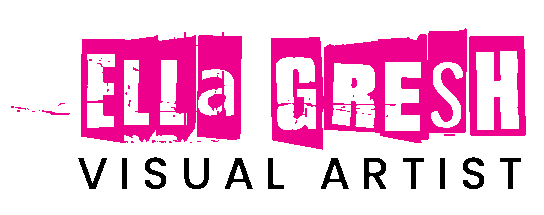Have you ever considered how the unique perspectives of individuals with autism could revolutionize the marketing industry? In a world that constantly seeks innovation and creativity, the neurodiverse talents of autistic individuals are emerging as a game-changing asset in marketing.
Autism, a condition often characterized by exceptional attention to detail, systematic thinking, and deep focus, can bring a fresh and unique approach to marketing strategies. While traditionally perceived as a challenge, the autistic mind is a wellspring of untapped potential that is now being recognized for its distinct advantages in a field that thrives on innovative ideas.
Embracing Autism’s Unique Cognitive Strengths
Autism-specific cognitive strengths offer a wealth of unrealized potential in the field of marketing, where originality and creativity are critical. Research has shed light on these remarkable capacities, especially in the areas of enhanced perceptual abilities and non-social visual processing. People on the autism spectrum are excellent at seeing complex patterns and symmetries; they frequently pick up on nuances that others miss. Their ability to process visual information more effectively allows them to create marketing strategies that are rich in complex patterns and themes, in addition to being aesthetically appealing.
Moreover, they have unmatched attention to detail, which enables them to identify nuances in complex stimuli—a skill that is crucial for developing accurate and powerful marketing campaigns. Individuals with autism contribute a novel and unconventional viewpoint to problem-solving in the marketing industry due to their heightened capacity for non-conventional thinking. Big businesses are realizing the value of this “out-of-the-box” thinking and are investing in the inventive abilities of autistic people to spur innovation and stand out in a competitive market. To put it simply, using the special qualities of autism in marketing opens the door to innovative strategies and fixes, turning obstacles into chances for artistic innovation.
“ We don’t want people who are all the same trying to come up with solutions to problems. ”
Maithilee Kunda
Unmatched Focus and Precision
The distinct cognitive abilities of autistic people are a tremendous asset in the complex field of marketing, where accuracy and attention to detail are not just desirable but necessary. Novel research, like that found in the journals “Molecular Autism” and “Molecular Psychiatry,” has demonstrated that people with autism have an amazing ability to focus for extended periods of time, particularly when working on activities that they find engaging. This increased focus translates into careful, detail-oriented work.
The development of marketing strategies that are both precise and highly nuanced is made possible by this unmatched focus. The ability of autistic people to sustain intense concentration under a variety of predictability and delay conditions guarantees that every element of a marketing strategy is precisely calibrated and flawlessly executed, which is crucial in an industry where even the smallest detail can make or break a campaign. By utilizing this unparalleled level of precision and focus, marketing teams are able to delve deeper into consumer insights and create campaigns that have a deeper impact, raising the bar for marketing excellence.
Capitalizing on Autistic Straightforwardness
It’s impossible to overestimate the importance of honesty and integrity. People with autism frequently possess a refreshing transparency, which is a quality that is more and more valued in current marketing practices. This trait, which is particularly noticeable in many autistic children who frequently find the idea of lying confusing and strange, translates into a remarkable openness in communication. This inherent directness and clarity that are common in autistic adults, prove to be effective tools for creating brand messaging that are authentic and build trust. Marketing campaigns become more authentic when they embrace this raw and honest viewpoint, forming a strong bond with consumers and building a brand story based on honesty and dependability.
Building an authentic brand narrative that consumers can relate to and trust is just as important as just making sales. By capitalizing on the natural honesty of autistic people, it can lead to more genuine interactions between brands and their customers, fostering enduring loyalty and trust—a valuable asset in today’s market where authenticity is not only valued but demanded.
Systematic and Analytical Thinking
The methodical, analytical thinking that is typical of autistic people becomes a tactical advantage in the complex field of marketing. Their distinct cognitive style, which is marked by a remarkable capacity to comprehend details, recognize patterns, and employ logical reasoning with minimal prejudices, enables them to thoroughly analyze intricate market trends and consumer behaviors.

This method opens the door for innovative, data-driven marketing strategies by fostering a deeper understanding of market dynamics. Because of their tendency for associative and bottom-up thinking, autistic thinkers are able to decipher complex consumer insights and predict changes in the market, which paves the way for more intelligent and precise marketing campaigns that resonate with consumers.
Harnessing Neurodivergent Innovation
Including neurodivergent people, especially those with autism, is not just a show of support, but also a tactical advantage. Their distinct ways of thinking frequently result in creative innovations in advertising, giving campaigns fresh, out-of-the-box concepts. This is supported by research, which demonstrates how such diversity of thought can transform approaches to advertising. Companies that represent this strategy include Mattel, which presented an autistic character called Bruno, in Thomas & Friends franchise.
Through authentic representation and catering to the neurodiverse community, they not only promote inclusivity but also strike an emotional connection with a sizeable portion of the population, because in the United States, 1 in 36 children have Autism as of 2023. This approach goes beyond simple representation; it aims to authentically comprehend and represent a range of experiences, increasing the brand’s attractiveness. Thus, valuing neurodiversity within marketing teams results in campaigns that are more innovative, inclusive, and captivating, effectively reaching a larger audience.
The marketing sector is leading the way in this change in the perception of autism in the workplace. Accepting neurodiversity increases productivity and creativity and satisfies consumer demand for authenticity and inclusivity.
It’s time to discover and value the special abilities that people with autism bring to the table, whether you work in marketing, are a business leader, or just curious about how neurodiversity and industry innovation intersect. To begin, consider hiring neurodiverse employees, educating your staff, and reevaluating how you handle creativity and problem-solving. There is an endless amount of potential, and the time to realize it is now. Before anything else, rethink your approach to creativity and problem-solving, educate your team, and take neurodiverse hiring into consideration. The opportunity to realize the potential is now, and it’s unlimited.
Referencess
- https://www.spectrumnews.org/features/deep-dive/finding-strengths-in-autism/
- https://www.nature.com/articles/s44159-022-00099-z
- https://molecularautism.biomedcentral.com/articles/10.1186/s13229-021-00422-0
- https://neuroclastic.com/autism-autistic-communication-differences/
- https://www.mmm-online.com/home/channel/neurodiversity-in-advertising-the-benefits-of-tapping-into-the-worlds-largest-minority-group/
- https://embrace-autism.com/thinking-styles-in-autistic-people/
- https://www.theyarethefuture.co.uk/autism-strengths/


Leave a Reply